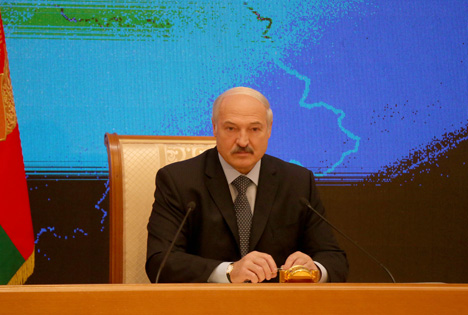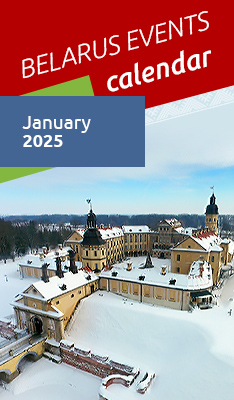Events
Lukashenko: Not the best year for advancing Belarus-Russia cooperation
 MINSK, 17 November (BelTA) – The year 2016 was not the best year for advancing Belarusian-Russian cooperation. Belarus President Alexander Lukashenko made the relevant statement while talking to representatives of Russian regional mass media in Minsk on 17 November, BelTA has learned.
MINSK, 17 November (BelTA) – The year 2016 was not the best year for advancing Belarusian-Russian cooperation. Belarus President Alexander Lukashenko made the relevant statement while talking to representatives of Russian regional mass media in Minsk on 17 November, BelTA has learned.
“This year has not been the best one with regard to either accomplishments or to the state of our relations,” said Alexander Lukashenko.
“As far as economy is concerned, you know perfectly well what happened. We are very dependent on the Russian market, particularly on raw materials and energy resources,” noted Alexander Lukashenko. The Russian market has experienced a serious slump, the national currency has been devalued, this is why both countries have incurred major losses, with trade turnover taking a dive. “The only bright spot is the fact that Belarus-Russia trade has not been reduced in natural terms. In natural terms the bilateral trade is growing, but we calculate the trade turnover in U.S. dollars. There is nothing to be proud of from that point of view,” stated the Belarusian leader.
In his words, during this year’s meetings with President of Russia Vladimir Putin within the framework of the Union State of Belarus and Russia and within the framework of the Eurasian Economic Union the heads of state repeatedly discussed this topic. Instead of concern the discussions started demonstrating even some grumpiness because “we’ve been unable to pull out from this dive and restore our economy for years now”. “The gross domestic product in Belarus and Russia is on the decline this year. In money terms because Belarus still produces as much but, unfortunately, we are not richer because of it. This is the background situation, which is also worsened by the complicated international situation. In these conditions this year we have not done better than last year and definitely not better than in previous years,” said Alexander Lukashenko. “We’ll wait and see how the situation will unfold because, if I may speak absolutely honestly, we will have to accomplish a great deal in order to work normally.”
Speaking about shortcomings in economic cooperation, including in the integration associations, of which Russia and Belarus are members, the President pointed out that more often than not when facing a difficult decision the partner countries resort to protective measures instead of working together to find a way out. “We tend to isolate ourselves and confine ourselves within our borders,” noted the head of state. “I don’t think that’s right particularly for Belarus and Russia. Our economies are mutually complementary. They don’t compete with each other in many areas. We shouldn’t be on the defensive and shouldn’t build some fences.”
Among other things the head of state told those present how he and Vladimir Putin had discussed problems with trade in medications a short while before. “Whatever attempts to hide the facts were made, I am inclined to think that medications are in short supply and are expensive in Russia. Belarus has recently embarked on a very serious program of developing the pharmaceutical industry. We couldn’t accept the situation when the share of Belarus-made medications in the country was as low as 25%. We intended to raise it to 50% and more in addition to making the most popular medications domestically. We’ve managed to fulfill the program and a bit more than that in order to be able to sell convenient and cheap medications that people need on a daily basis,” noted Alexander Lukashenko. Belarus intended to sell the medications to Russia where these medications are in short supply. “What do you think? It was impossible to penetrate that market,” stressed the head of state.
During the meeting with his Russian counterpart Alexander Lukashenko raised the issue while Vladimir Putin gave instructions to resolve the problem as soon as possible. “So, just recently I heard the news that Belarus and Russia have signed an agreement on the common medication market,” said the Belarusian leader. “Did the two presidents have to get involved in order to resolve the problem? We face the same problem in many other areas.”
“We have yet to overcome the negative trends and phenomena that happen in the world as a whole and in the former [Soviet] Union in particular, especially in Belarusian-Russian relations. And we should build common policies,” added Alexander Lukashenko.







 print version
print version make home page
make home page add to bookmarks
add to bookmarks

